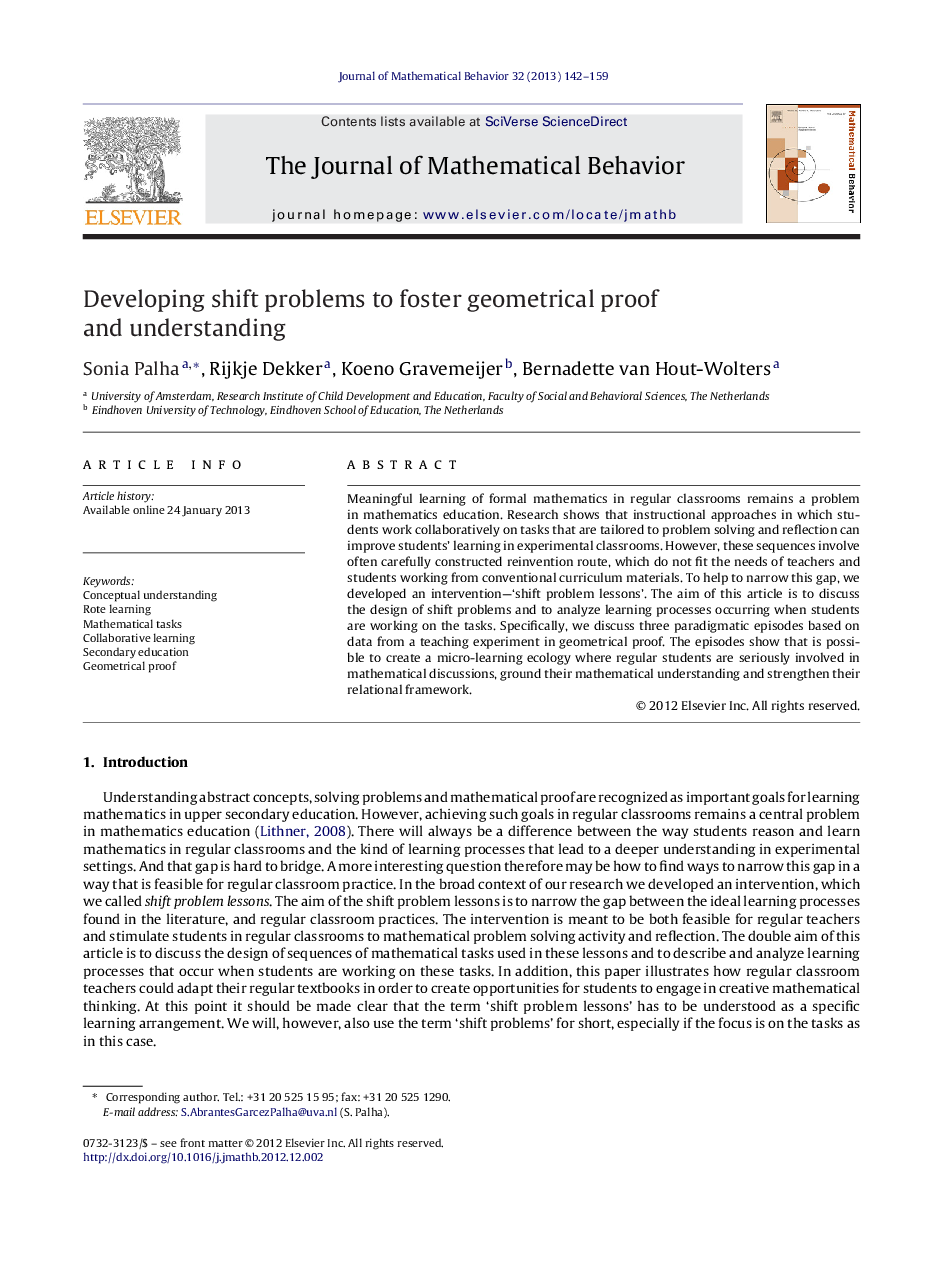| Article ID | Journal | Published Year | Pages | File Type |
|---|---|---|---|---|
| 360741 | The Journal of Mathematical Behavior | 2013 | 18 Pages |
Meaningful learning of formal mathematics in regular classrooms remains a problem in mathematics education. Research shows that instructional approaches in which students work collaboratively on tasks that are tailored to problem solving and reflection can improve students’ learning in experimental classrooms. However, these sequences involve often carefully constructed reinvention route, which do not fit the needs of teachers and students working from conventional curriculum materials. To help to narrow this gap, we developed an intervention—‘shift problem lessons’. The aim of this article is to discuss the design of shift problems and to analyze learning processes occurring when students are working on the tasks. Specifically, we discuss three paradigmatic episodes based on data from a teaching experiment in geometrical proof. The episodes show that is possible to create a micro-learning ecology where regular students are seriously involved in mathematical discussions, ground their mathematical understanding and strengthen their relational framework.
► Carefully constructed learning routes are not feasible for the regular teacher. ► Our intervention illustrates how regular teachers may adapt their textbooks. ► A collaborative setting helped to create a problem-oriented classroom atmosphere. ► Students engaged in mathematical thinking and reflection. ► Extends research on students thinking and reasoning at regular classrooms.
